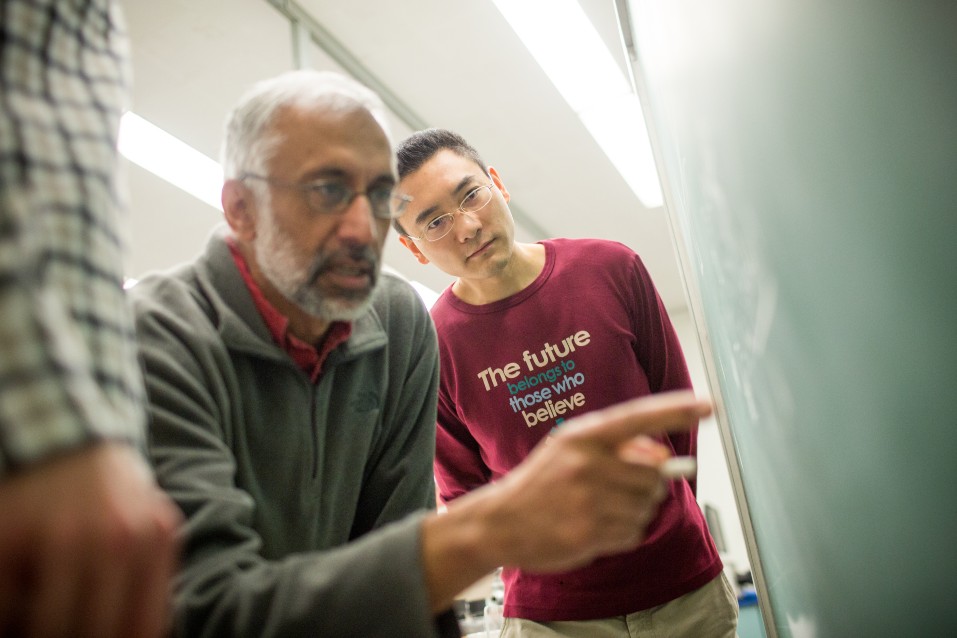
Population Health is All Around Us
Targeting the health of specific communities around the world, population health is a broad-ranging field that affects virtually every aspect of our daily life. From the COVID-19 pandemic and the decisions that health care providers make to housing stability and transportation access, population health is always all around us.
The Centers for Disease Control and Prevention views population health as an interdisciplinary, customizable approach that allows health departments to connect practice to policy for change to happen locally. Essentially, population health examines significant health concerns across a specific population, whether it’s a geographic, ethnic or other defined group, and aims to address and prevent them through resource allocation. This method relies on the collaboration of multiple community sectors and levels, such as public health, industry, academia, health care and local government to achieve positive health outcomes.
Lehigh’s College of Health approaches health from a global perspective to prepare today’s population health workforce for the future. The demand for leaders who understand complex public and population health issues has never been greater. As the federal government continues to prioritize value over volume in the health care industry, population health experts are uniquely equipped to improve health outcomes across communities and populations.
Read on to explore how population health impacts our everyday lives and how a population health degree from the College of Health prepares students to influence health outcomes and make a significant difference in the lives of many.
Supporting prevention and wellness initiatives
When population health experts identify high burden health conditions within a group of people, effective interventions are deployed. For example, strategies to prevent high blood pressure include improving adherence to prescription medications through low-cost medication copayments, innovative pharmacy packaging and increased blood pressure self-monitoring. Simple daily activities, such as showering with clean tap water and drinking safe milk, can be attributed to population health interventions.
Promoting healthier behaviors
In order to prevent health issues in a certain group of people, population health experts target treatment adherence, patient self-care and lifestyle changes. For example, population health experts aiming to combat rising childhood obesity rates in a geographic area by implementing a physical education program in the local school system.
Improving access to care
Access to care is pivotal for both health prevention and positive outcomes to medical needs. When a health concern has been identified in a specific group, population health experts work to improve access to care. This is evident when rural health care providers are equipped with telehealth technology that allows them to treat patients quickly and more affordably than more frequent physical visits.
Implementing a community-based approach
Population health experts collaborate with health care providers and community resources to meet people’s needs for medical care, food, housing and social contact. For instance, working with public housing management companies and local government entities to implement strategies to prevent asthma, through elements such as building materials and air circulation.
Examining health development over the life course and intergenerationally
As health is cumulative and is impacted by risk and protective factors that occur over the life course and even intergenerationally, population health researchers focus on examining the mechanisms through which uterine and early life exposures, such as malnutrition, air pollution, and family and neighborhood violence, influence one’s risk for experiencing chronic diseases, such as heart disease, diabetes and depression, later in adult life.
Population health at Lehigh
For those interested in helping others through health care, a population health degree provides the opportunity to make a tremendous impact on a broad spectrum of people and groups. At Lehigh, population health majors investigate the determinants of health using data science and identify novel and effective avenues for disease prevention, health promotion, diagnosis and intervention. Armed with a foundation of mathematics, natural sciences, social sciences and computer science, population health majors pursue a healthier world through data science and epidemiology. With a population health degree, you can transform a healthier world on a large scale through problem solving, collaboration with key stakeholders and strategic creativity.
Want to learn more about population health? Check out our new blog, Convergence, to hear from the nation’s leading population health voices, current College of Health students and our renowned faculty.


